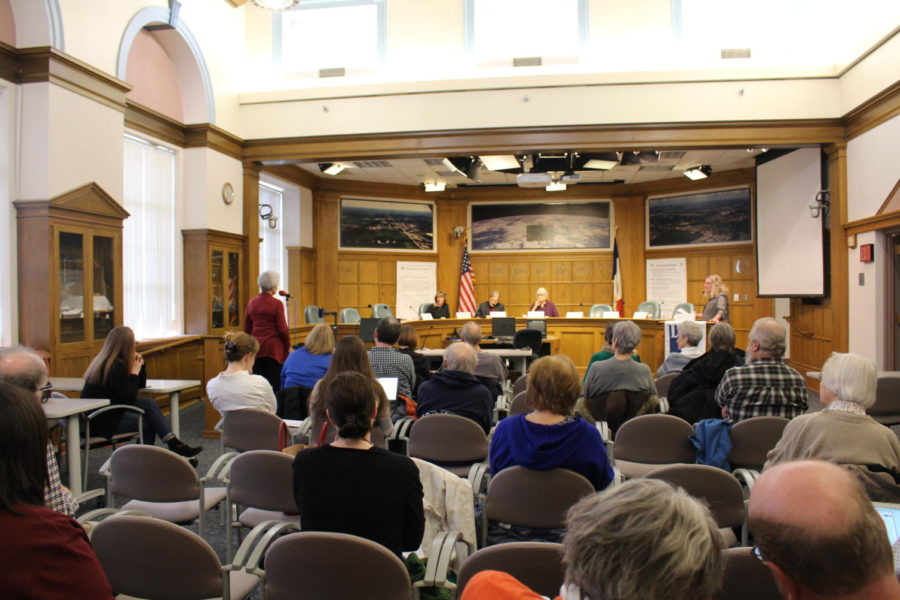Letter: Questions are the answer for Iowa’s 2020 legislative session
Letter writer Steve Corbin believes that questions will be helpful for finding answers during Iowa’s 2020 legislative session.
January 8, 2020
Socrates (469-399 B.C.), the founding father of Western philosophy, believed only through the process of continual questioning could a person discover truth. According to Socrates, questions are the answer. With Iowa’s legislature starting Jan. 13, there are a multitude of questions Gov. Reynolds and legislators need to answer and act upon in 2020.
For example, on Nov. 2, 2010, 63 percent of Iowans voted to add an amendment to Iowa’s constitution to protect natural resources and outdoor recreation. Why have our representatives blatantly ignored the will of the people while Iowa’s woefully toxic soil and water is before their very eyes (and nose)? Doesn’t it make sense to enact 3/8th of a penny sales tax — which would generate $190 million per year — to clean up Iowa?
Why are legislators satisfied with Iowa being ranked the 33rd state for high-speed broadband accessibility? Don’t they know with 100 percent broadband access, Iowa would become a magnet state for business growth and citizen prosperity?
Since Iowa: 1) has the third highest racial disparities of whites and blacks in incarceration in America, 2) has Hispanic incarceration within the top 25 worst in the country and 3) is the only state that does not restore the right to vote for convicted felons while knowing Iowa’s Supreme Court approved mass re-enfranchisement (Oct. 31, 2005), why haven’t our elected representatives enacted criminal justice reform and abolished felon disenfranchisement?
Why haven’t legislators embraced universal childhood education when research reveals 90 percent of brain development happens before a child is five years old and Iowa ranks 37th in state spending on preschool? If we don’t act now, aren’t we shortchanging Iowa’s future skilled workforce?
Since 71 of Iowa’s 99 counties and over 700 of Iowa’s 947 incorporated cities have lost population in the past decade, about one in five rural healthcare centers are in danger of closing, and research is replete with Iowa’s current rural financial hardship, which was caused by President Trump siding with big oil companies over biofuels and his not-well-thought-out contentious trade war, shouldn’t revitalizing rural Iowa be a legislative priority?
Why are legislators ignoring a gender equal-pay-for-equal-work public policy when we know women in Iowa are paid 77 cents for every dollar paid to a man, and Iowa has the nation’s 17th largest gap between what gender workers earn? Is equity a virtue or not to our female governor and legislators?
Why are our delegates to the Capitol holding onto Iowa’s 2016 dictated privatized Medicaid program and refusing to acknowledge we have a healthcare crisis if we know 600,000 Iowans have been denied health care, Iowans with disabilities aren’t getting the care they need, health care providers are closing or reducing services and the number of uninsured Iowans has doubled from 3.9 to 7.2 percent (one of the highest in USA)?
Why have legislators only allocated two percent average increase per year in the past decade to Iowa’s K-12 public schools when they know three percent is needed just to cover the cost of inflation? Are they proud Iowa ranks 30th nationally in spending per student and schools have been forced to increase class size, fire teachers and raise property taxes?
If our elected delegates asked questions over a few other issues, like our skilled workforce shortage, Iowa’s Nutrient Reduction Strategy, community safety and higher education, to name a few, the public policy answer would be revealed. Socrates might ask, why can’t Iowa legislators and the governor see the same data and rankings as their constituents and ask themselves what needs to be done to resolve issues in peril? Perplexing, isn’t it? Questions are the answer.







